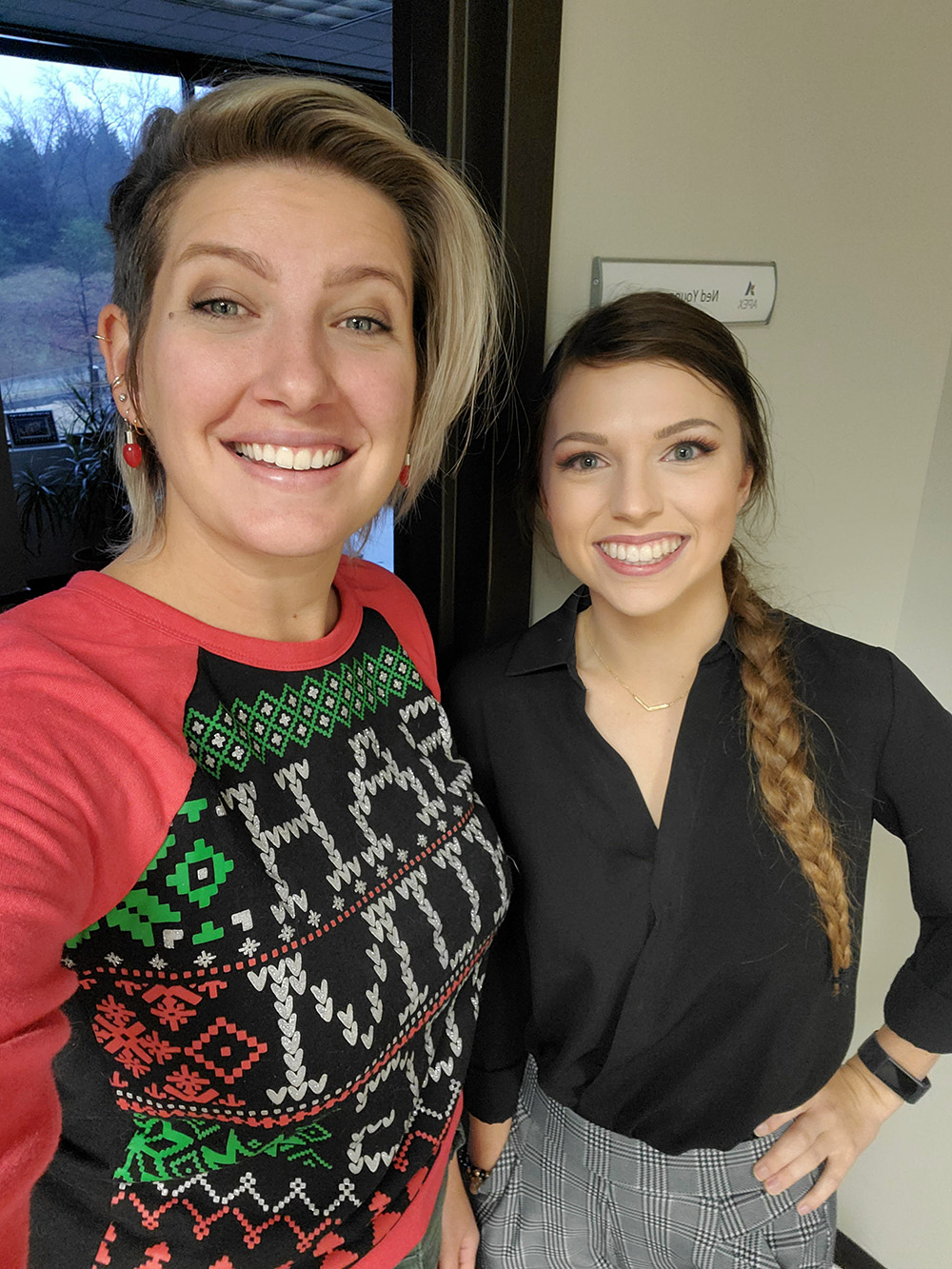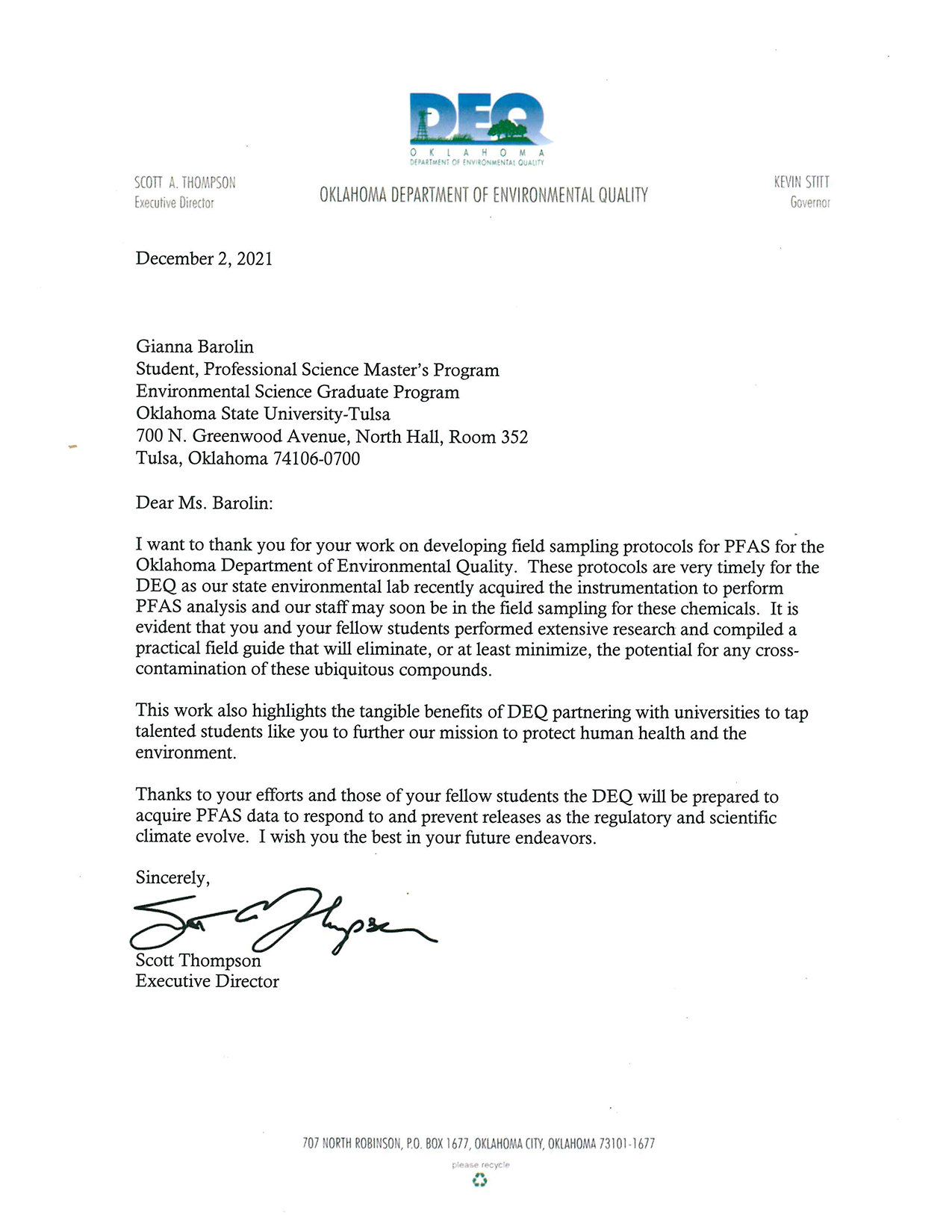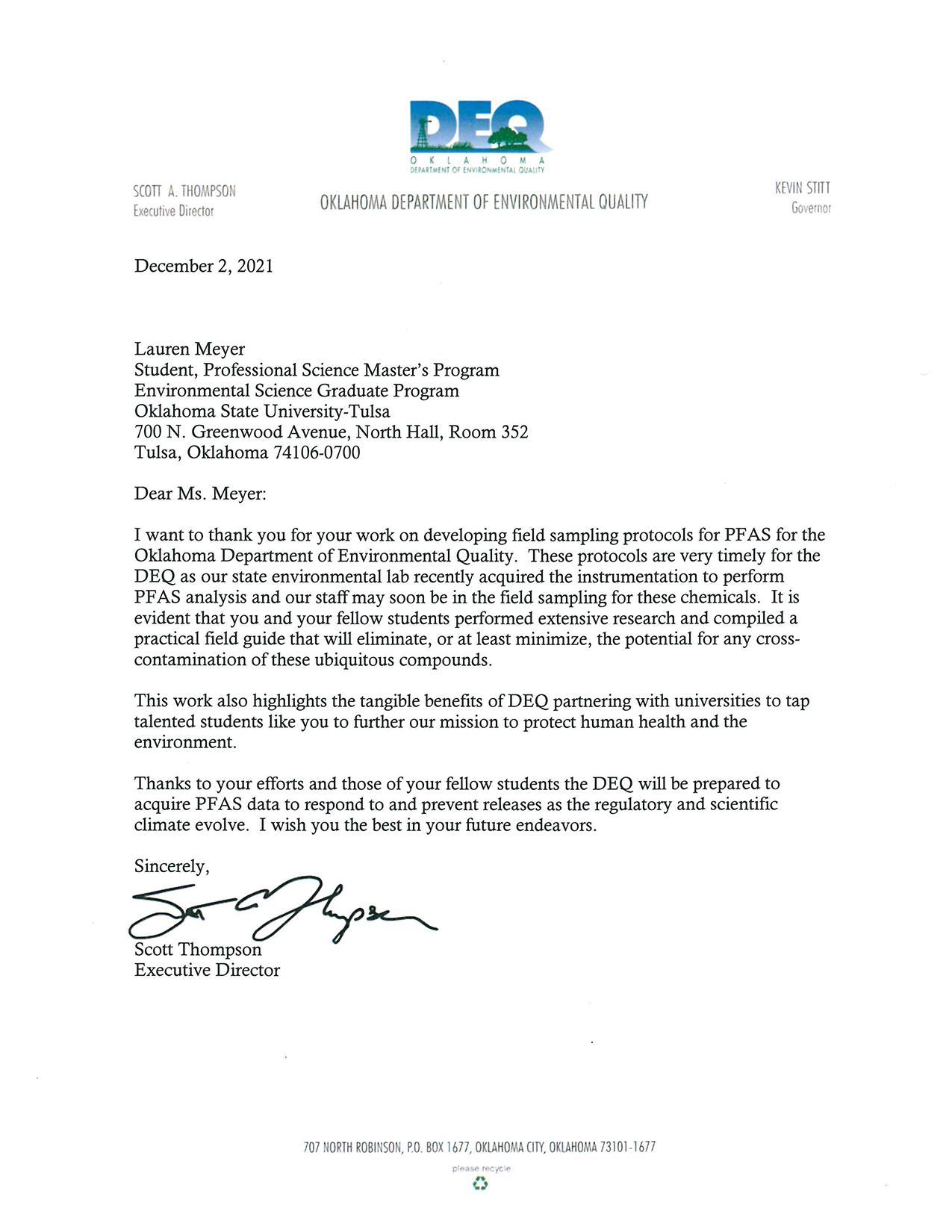Apex Scientists Solve Real-world PFAS Problems for ODEQ
As the federal government pushes forward to regulate per-and polyfluoroalkyl substances (PFAS), states are doing their best to develop guidance that fits the needs of their constituents.
Lauren Meyer and Gianna Barolin, employees of Apex Companies’ Oklahoma Division and enrolled in the Professional Environmental Science Master’s Graduate Program at Oklahoma State University Tulsa, combined their course of study with their field experience to perform thesis research on PFAS sampling protocols and help the Oklahoma Department of Environmental Quality (ODEQ) establish its own sampling protocols.
Erin Kane is our VP of marketing and client development and leads Apex’s internal PFAS working group. With a background in geology and site investigation and a passion for problem solving, she loves to share stories like this one! Erin had a chance to interview Lauren and Gianna on Friday December 17, 2021, to hear more about how they got involved in this recently completed project, and to learn more about their experience in developing these sampling protocols.

So tell me more about your graduate program at Oklahoma State University in Tulsa?
Lauren: This program is one of the few of its kind in the country—they actually focus on preparing students for careers in the environmental field, with more of a focus on remediation and helping industry comply with regulations.
Gianna: Yes—it’s really geared toward working professionals, and they boast a 100% employment rate for program graduates!
Both: Our professor and program advisor Dr. Ken Ede is great—he has a PhD in chemistry and sits on the Hazardous Waste Management Advisory Council and is a member of the Environmental Federation of Oklahoma. He has published a lot of essays on PFAS and is very passionate about the subject matter. And many of the professors are industry people! We had an environmental class with the lead environmental director at one of our clients in the petroleum industry, and the OSHA class was taught by the head of health and safety at another company! We both just finished the program and started with Apex this summer!
So, when did you start this PFAS project, and how did you get involved?
Both: The ODEQ actually reached out to our advisor Dr. Ede—which isn’t a surprise given that he is so involved with PFAS and has many connections in the industry—and he asked us if we would like to take the project on as our thesis in August. We were able to put sampling protocols together, which required quite a bit of research. We submitted our work to Dr. Ede on Thanksgiving morning, and after he reviewed them, he submitted them to ODEQ.
Erin: Wow, Thanksgiving morning. I bet that felt good to hit send!
Both: Yes, the project was due at the end of November due to a timeline the state had established.
And I understand you also reached out to Heather Gosack, RG, our resident PFAS subject matter expert (SME) at Apex?
Both: Yes! She was great—she went through all the documents and gave us some great feedback and suggestions.
Erin: That is awesome, I bet she enjoyed that!
Both: Well, she said she did!
So, where do you think things are headed as far as PFAS goes, based on your experience in your program and at Apex?
Lauren: PFAS is huge. There is so much work coming in the next few decades, as the science is finally bringing all of the detrimental impacts of PFAS to light.
Gianna: Only about ten or so states currently have sampling plans; since the EPA has not published anything official yet, the states are trying to figure out for themselves what works best. PFAS are in so many things—from Goretex to waterproof mascara, and a lot of manufacturers aren’t yet required to report.
Erin: Gee, I wonder if the mascara I use has PFAS in it…it’s Vegan?!?
Both: Check out PFAScentral.org—they have a list of products that don’t contain PFAS. They are updating it all the time.
So going a step further, do you think sampling programs like the one that you just helped craft for ODEQ can be applied universally? Or do you think each jurisdiction needs to take a customized approach?
Both: It’s tough—it seems like they should be, but because each state is regulating PFAS differently at this point, it’s not really feasible. For example, in Michigan the regulated levels for PFAS are much lower than in other states, so they would probably be less willing to accept any cross contamination in their samples. The EPA is in the process of developing a lot of new guidance, like the PFAS roadmap, so there may be some more consistency in the future.
Erin: Got it! So, it really comes down to each state’s policies, regulations, and overall rigor when it comes to setting and enforcing environmental regulations.
Both: Yes, exactly!
Erin: Well—thanks for taking the time today to tell me more about this really cool project! I heard you both got letters from Scott Thompson, the Executive Director at the ODEQ for your work on this? That is just awesome, what a nice way to wrap up your degree! I know that Apex is proud to have the two of you here and we look forward to hearing more on the developing PFAS narrative!
Both: Thank you! Yes, the state plans to start doing more sampling for PFAS, so it was great to contribute to something that will actually make a difference and help to improve the environment here in Oklahoma.
As a leading environmental services provider with extensive expertise on PFAS sampling and assessment, Apex looks for opportunities to support our partners as they navigate the complex PFAS landscape. To learn more about our PFAS expertise, check out our blog or reach out to us today at info@apexcos.com.
Apex Associated Press (Apex AP) represents contributions from various authors within the Apex professional community.


